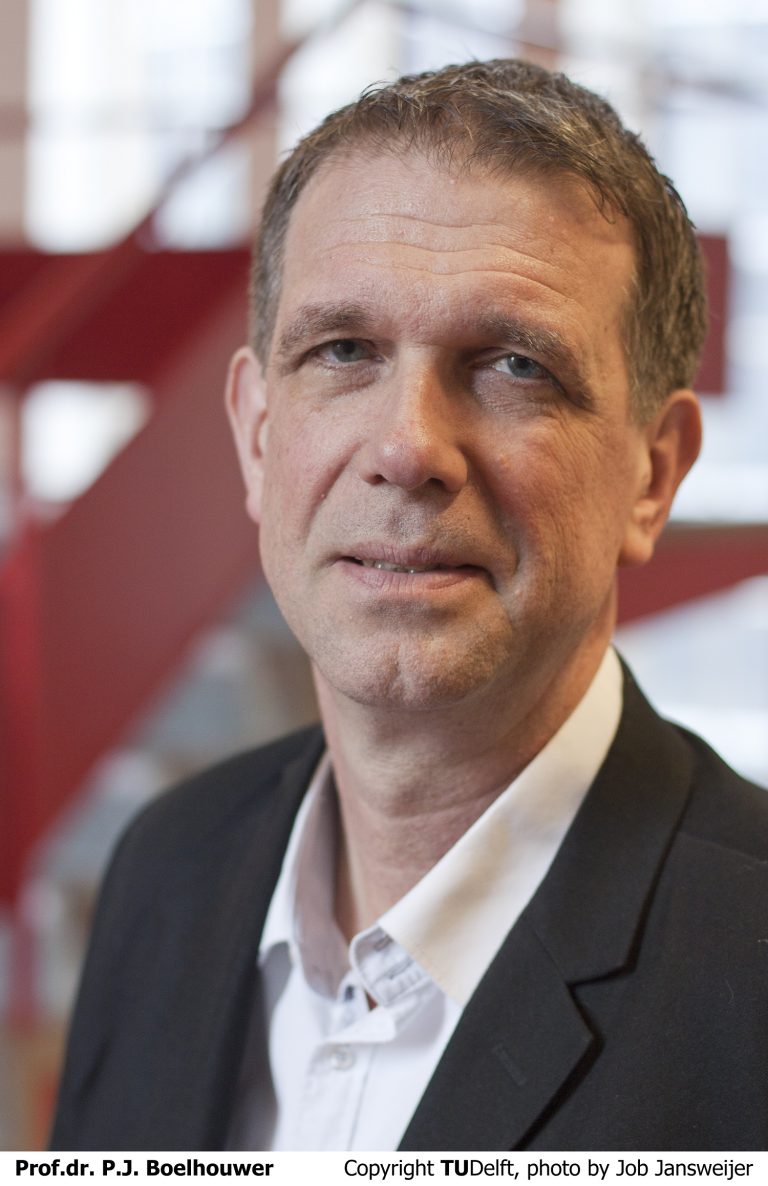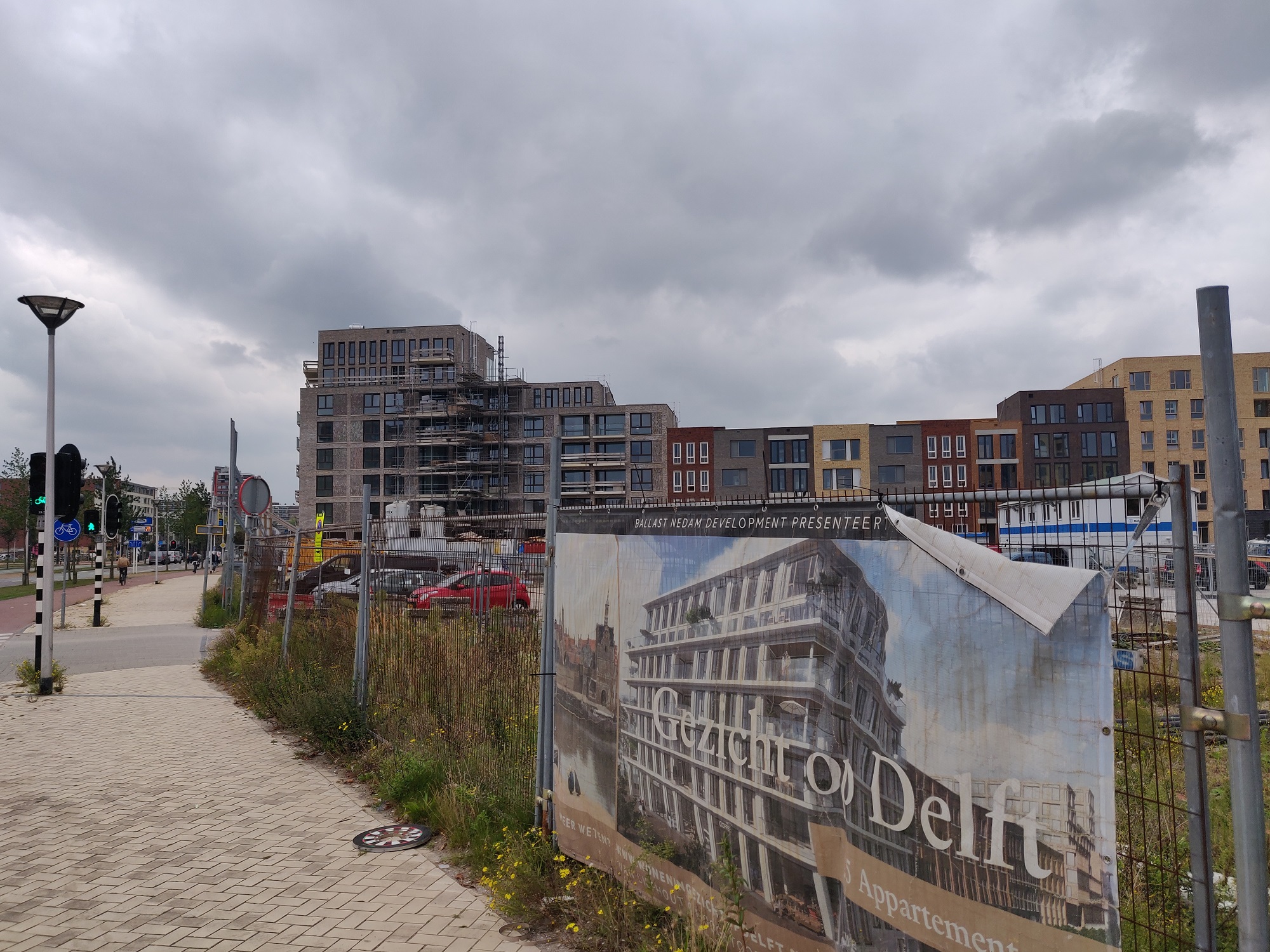Housing has become almost unaffordable. Still, at the Van Leeuwenhoeklezing in the Science Centre, real estate expert Peter Boelhouwer says that there is no housing bubble.
To meet current demand, the Netherlands needs to build more than 300,000 houses. (Photo: Marjolein van der Veldt)
Just try to find an affordable house to buy if you have just entered the labour market. It’s virtually impossible. How long can the house prices continue to rise? The latest figures from the Central Bureau of Statistics (CBS) are clear. In August, house prices were 8.2% higher than in August of last year.


Many people are postponing buying, after all, it could be a bubble. And if that bubble bursts, first-time buyers will have plenty of choice on the market. But anyone thinking, or hoping, this got a shock on Monday. During his presentation, real estate expert Prof. Peter Boelhouwer of the Architecture and the Built Environment Faculty was crystal clear. “The housing market is not a speculative bubble.” Reason enough to ask Boelhouwer some questions.
What do you base your assertion that it is not a bubble on?
“It shows in econometric models. If people speculate, the speculation can create a bubble. But in this case, speculators are irrelevant to the price shifts. The prices are paralleling the lending capacity. If the interest rate is low and incomes rise, the house prices will rise. Of course they may drop too and that may happen if we go into an economic recession and many people lose their jobs. Or if the interest rate rises.”
None of these scenarios are good for young people. You believe that we just need to build more.
“We now have the biggest housing shortage since the 1960s. To meet current demand, the Netherlands needs to build more than 300,000 houses. If we continue to build at the current rate, in thirty years’ time we will be short of more than one million homes. We are one of the most affluent countries in the world but we seem unable to supply enough homes. It is bizarre that it has come this far. Buying homes is beyond the reach of first-time buyers and the waiting lists for rented social housing is ten years or more in many municipalities.”
So more construction then. Will the prices then drop?
“Yes. But don’t expect the prices to drop as soon as there are more houses. Municipalities and other land owners will then raise the price of land. The drop in price will be gradual.”
Where can we still build?
“We have had Rijksbouwmeesters (Government architects, eds.) who believed that almost all homes should be created from refurbishments (for example by turning unused office blocks into homes, eds.) and that most of building work should be done in the cities. It became a sort of dogma. Luckily, more and more people are seeing that this is not feasible. There is too little space. Cities need green spaces to make them liveable and need storage facilities to capture water when it rains heavily. On top of this, not everyone wants to live in a city.”
Is there enough space outside the cities?
“We would only need 1% more surface area to have enough land to build on. Sixty-six per cent of the Netherlands is agricultural land, 19% built and 15% nature. So two-thirds of our land is farmland! That’s a huge proportion. Imagine if we reduce this to 50 percent – it would still be a large proportion. That would give us enough space for housing and we could then even double the nature areas. Agriculture, as practiced in the Netherlands, is untenable for several reasons. Firstly we need the space to build. Secondly, The Netherlands is sinking – the land is subsiding because of the drainage for agriculture. This is causing the foundations of houses to deteriorate. We also need to make the land climate-proof and need space for water storage. And then there is the problem of the livestock which produces a lot of CO2 and nitrogen emissions. Are we living for the cows or are we living for ourselves in the Netherlands?”
You plead for major changes in spatial planning in the Netherlands. We used to have the Ministry of Housing, Spatial Planning and the Environment (VROM) for this. The Ministry was closed in 2010. Should we have a new ministry for spatial planning?
“Yes. My research group attracts a lot of internationals. They say that they are interested in the wonderful spatial planning and the social housing in the Netherlands. But I have to disappoint them. They don’t exist anymore. The Cabinet needs to take charge again. Luckily there is much support for this view in politics. It is even more urgent now as there is a strict environmental law covering noise in the pipeline. We already have limitations to construction because of nitrogen and PFAS (toxic chemical substances, eds.). In a couple of years’ time there will be a third limiting factor.”
When will it be attractive again for first-time buyers, say recently graduated TU Delft alumni, to buy a house?
“There is no simple answer to this. I think that many first-time buyers will have to look outside the busy Randstad. The areas around Deventer and Wageningen are now popular. But there too the prices are rising very fast.”
Do you have a question or comment about this article?
tomas.vandijk@tudelft.nl


Comments are closed.